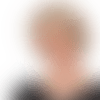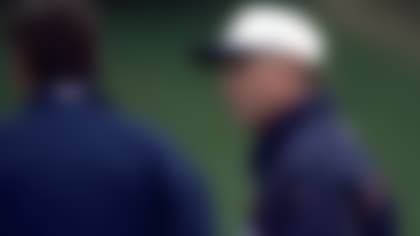By Bill Bradley, contributing editor
Bruce Arians knows all too well about health scares.
The Arizona Cardinals head coach suffered through migraine headaches when he was in charge of the Temple University football program. He survived prostate cancer as an assistant coach with the Pittsburgh Steelers. And he took over as Indianapolis Colts head coach during the 2012 season when Chuck Pagano had to leave the team after being diagnosed with leukemia.
But there was only one health issue that he said made him miss a day of work. It occurred on Jan. 6, 2013, two weeks before he was hired by the Cardinals.
Arians missed the Colts' 24-9 wild-card playoff loss at the Baltimore Ravens because he fainted prior to the game and was hospitalized.
"I had that episode in Baltimore," Arians told NFL Network Player Health and Safety Correspondent Andrea Kremer during the coaches' roundtable. Part 4 focusing on health is scheduled to air Thursday on NFL Network. "First time I've ever missed work. It killed me to go to the hospital."
The illness was a confluence of events for Arians, who had missed practice two days earlier with the flu. NFL.com reported that at first doctors thought he was suffering from an inner ear infection or a virus.
"I'm at my breakfast, then all of a sudden the room starts flying around," said Arians, who was selected as the NFL Coach of the Year that season for his efforts in serving as the interim coach in place of Pagano. "I get motion sickness anyway, so I immediately get sick so the doc comes over and he's doing the eye test. 'Nope, you're going to the hospital.' I thought, 'They're not going to let me out in time.' "
The Colts made a smooth transition because Pagano had returned from cancer treatments a week earlier. But it still affected the team, which returned to the playoffs after going from 2-14 in 2011 to 11-15 in 2012.
"Soon as I went in and they admitted me, the other doctor took over and said, 'No you're not going to the game.' They rolled a TV in and let me watch it. ... My blood pressure was going through the roof then."
Hospitals, though, were not new to Arians. He had dealt with migraines during his time as head coach at Temple (1993-98) and they caused him to seek care.
"I was a young head coach (at Temple) and I thought I had to do everything," Arians said during the roundtable. "I was 30 years old and was the quarterback coach, offensive coordinator, recruiting coordinator, head coach and fundraiser.
"By the time I was 33, I was in the hospital twice a week with migraines. Last migraine I had, they thought I stroked. I said, 'This is it. I got to do something.' They day I got fired, I never had another migraine."
He also beat prostate cancer after it was discovered during his postseason physical -- which most teams provide for their coaching staffs -- with the Pittsburgh Steelers in the winter of 2009.
"I was thinking about changing jobs," Arians said during the roundtable. "My physical was the next week. I stayed in Pittsburgh. I took the physical. They found out I had prostate cancer. Had I left, I wouldn't have taken the physical that year."
Yet he must have felt cursed when one of his assistant coaches suffered a rare heart condition on the field during minicamp last June. Quarterbacks coach Freddie Kitchens was helped off the field by Carson Palmer and Drew Stanton when they saw him acting weak.
Kitchens stayed on the field, but a numbness in his leg convinced him to visit the trainers' room. What was thought to be dehydration and later a heart attack was diagnosed as an aortic dissection -- a tear in the inner layer of the aorta -- that needed a specialist to repair.
"It's a miracle he's here," Arians told the Arizona media after Kitchens returned to the team in August. "It's like nothing ever happened. I'm sure (his wife) Ginger doesn't feel that way, but it was a very trying time. Thank goodness he wasn't too hard-headed."
It's one reason why Arians agrees with New York Giants coach Tom Coughlin: NFL coaches have the best healthcare available.
"I really do believe if you will just cooperate a little bit, it's a very healthy profession," Coughlin told the coaches roundtable. "Because of the doctors. We have incredible, incredible care."




